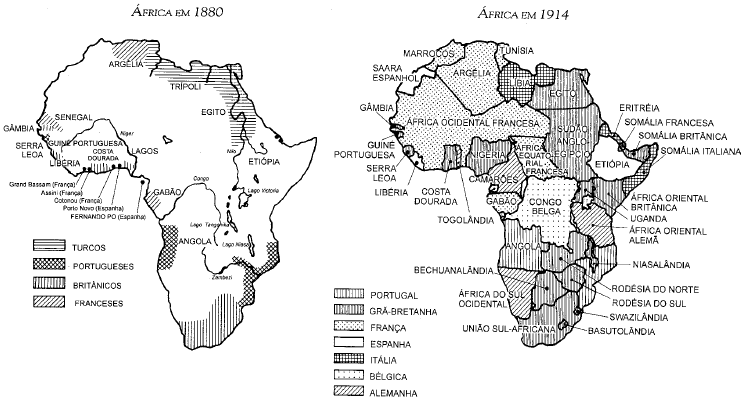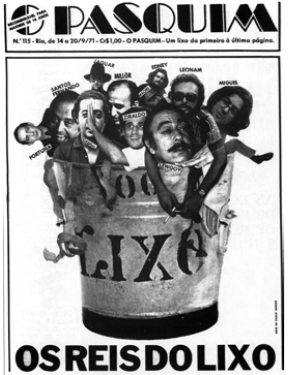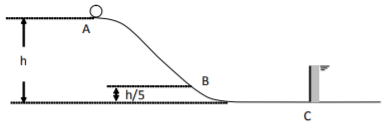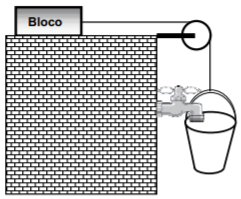Questões de Vestibular MACKENZIE 2010 para Vestibular
Foram encontradas 60 questões
A Crotalaria é uma planta pouco exigente e conta com bactérias fixadoras de nitrogênio, tornando seu crescimento mais rápido. É bastante utilizada como adubo verde, em rotação com diversas culturas e no enriquecimento do solo.
O texto permite destacar os seguintes tipos de relacionamentos entre os indivíduos citados.
A partir do texto, considere as afirmações abaixo.
I. Devido ao uso constante de antibióticos em hospitais, as bactérias que permanecem nesses ambientes foram selecionadas.
II. A resistência das bactérias aos antibióticos pode ser transmitida às gerações seguintes por divisão celular ou por conjugação.
III. Amensalismo é o nome da relação ecológica que pode se estabelecer entre as moscas e as bactérias.
Assinale

Sabendo que o daltonismo é devido a um gene recessivo localizado no cromossomo X e que a polidactilia é uma herança autossômica dominante, a probabilidade do casal 3X4 ter uma filha normal para ambos os caracteres é
H.L. Wesseling. Dividir para Dominar: A partilha da África (1880-1914)

A diferença entre os mapas africanos, em 1880 e 1914, apresentada no texto e ilustradas, é explicada
De acordo com o texto, é correto afirmar que as Cruzadas
“Desde cedo, aprendemos, em casa ou na escola, que o Brasil
foi descoberto por Pedro Álvares Cabral, em abril de 1500. Esse fato
constitui um dos episódios da expansão marítima portuguesa, iniciada
em princípios do século XV. Para entendê-la, devemos começar pelas
transformações ocorridas na Europa Ocidental, a partir de uma data
situada em torno de 1150.”
Entre as transformações citadas no texto, e que se encontram entre as causas da expansão marítima europeia no século XV, podemos, corretamente, citar

Nas décadas de 1960 e de 1970, o cenário cultural inter nacional foi marcado com vários movimentos de contracultura, visando transgredir valores políticos e morais. No Brasil, em 26 de junho de 1969, inicia-se a publicação do jornal O Pasquim, que além de ser um órgão contra o regime militar, inaugurou uma nova concepção da ilustração de humor. Denunciando o clima opressivo que regia as relações sociais durante esse período, os cartunistas utilizaram o humor e o deboche em suas criações.
A respeito desse tema, considere as afirmações I, II e III.
I. Para essa geração de ilustradores, era através do traço que se articulava a denúncia, podendo, por meio de charges e ilustrações, apontarem o que poucos críticos do regime atreveriam-se a dizer em palavras.
II. Ao dar destaque para a ilustração, tais artistas conseguiram restaurar, na imprensa brasileira, o poder do discurso visual, e não apenas da composição textual.
III. Ao desenvolverem o equilíbrio entre o texto e a ilustração, tais artistas acompanharam a tendência existente, desde a criação da Imprensa Real, em 1808, de uma imprensa nacional que estimulasse a produção e a crítica cultural, livre de censuras.
Dessa forma,
Dado: Aceleração da gravidade = 10 m/s2

Um corpo de pequenas dimensões e massa 400 g é abandonado do repouso no topo do trilho ilustrado acima. O atrito é desprezível, o módulo da aceleração gravitacional é g = 10 m/s2 e, quando esse corpo passa pelo ponto de altura h/5, sua energia cinética, em relação ao trilho, é 4,00 J. Chegando ao ponto C, ele se choca frontalmente com um espelho plano disposto perpendicularmente à parte horizontal do trilho. Nesse instante, a velocidade do corpo, em relação à respectiva imagem conjugada no espelho, tem módulo
Dado: g =10 m/s2

